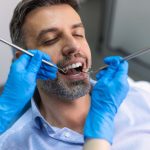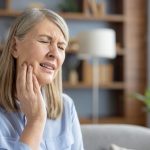Easy At-Home Oral Hygiene Tips
Maintaining good oral hygiene is essential not just for a bright smile, but for overall health. Poor oral care can lead to tooth decay, gum disease, and other health problems. The good news? You don’t need a dentist by your side every day to maintain a healthy mouth. With the right daily habits, you can keep your teeth and gums in top shape from the comfort of your home. Here are the top tips for maintaining excellent oral hygiene at home:
1. Brush Twice a Day
Brushing your teeth is the foundation of good oral hygiene. Dentists recommend brushing at least twice a day — once in the morning and once before bed — for two minutes each time. Use a soft-bristled toothbrush and fluoride toothpaste to remove plaque and food particles. Make sure to reach all areas, including the back teeth and gumline.
Tip: Replace your toothbrush every 3–4 months or sooner if the bristles are frayed.
2. Don’t Forget to Floss
Flossing is just as important as brushing but often overlooked. It helps remove food and plaque from between your teeth, where a toothbrush can’t reach. Floss at least once a day to prevent gum disease and cavities in these tight spaces.
Tip: If traditional floss is difficult to use, try dental picks or water flossers.
3. Use Mouthwash for Extra Protection
Mouthwash can help clean areas that brushing and flossing might miss. It helps kill bacteria in the mouth, freshens breath, and can strengthen teeth when fluoride-based. However, it shouldn’t replace brushing and flossing but can be a great addition to your routine.
Tip: Choose a mouthwash that targets your specific needs, like one with fluoride for cavity prevention or a formula that fights plaque.
4. Maintain a Balanced Diet
Your diet plays a significant role in oral health. Eating a diet rich in fruits, vegetables, and lean proteins can support healthy teeth and gums. Avoid excessive sugar, as it can lead to tooth decay by feeding harmful bacteria in your mouth. Sugary drinks, like soda and sweetened juices, should also be limited.
Tip: Chew sugar-free gum after meals to stimulate saliva production, which helps wash away food particles and neutralize acids.
5. Drink Plenty of Water
Water is your mouth’s best friend. Drinking water throughout the day helps wash away food debris and bacteria, keeping your mouth cleaner. It also helps prevent dry mouth, which can lead to bad breath and an increased risk of tooth decay.
Tip: If possible, drink fluoridated water, as it strengthens teeth and helps prevent cavities.
6. Avoid Smoking and Tobacco Products
Smoking and the use of tobacco products not only stain your teeth but also increase your risk for gum disease, tooth loss, and oral cancer. Quitting tobacco is one of the best things you can do for your overall health, including your oral health.
Tip: Seek professional support if you’re finding it difficult to quit smoking. The health benefits are worth the effort.
7. Limit Acidic Foods and Drinks
Highly acidic foods and drinks can erode the enamel on your teeth over time. This can lead to increased sensitivity, discoloration, and a greater chance of cavities. Citrus fruits, coffee, and soda are some examples of acidic foods and drinks to consume in moderation.
Tip: After consuming acidic items, rinse your mouth with water and wait at least 30 minutes before brushing to prevent enamel damage.
8. Replace Sugary Snacks with Healthy Alternatives
Constant snacking on sugary foods increases the chance of tooth decay. Instead, choose healthier snacks like crunchy fruits and vegetables. These help clean your teeth as you eat and stimulate saliva production.
Tip: Carrots, apples, and celery are great snack options that promote oral health.
9. Be Gentle on Your Teeth
When brushing, it’s important to be thorough but gentle. Using too much pressure can wear down your tooth enamel and irritate your gums. Opt for a soft-bristled toothbrush and gentle strokes to keep your teeth and gums safe.
Tip: Try using an electric toothbrush with a pressure sensor to help control the force used during brushing.
10. Schedule Regular Dental Checkups
Even with the best at-home oral hygiene practices, regular dental checkups are essential. Dentists can spot early signs of decay, gum disease, or other issues that you might not notice. It’s recommended to see your dentist at least twice a year for cleanings and exams.
Tip: Don’t wait for pain or discomfort to visit the dentist. Regular checkups can prevent problems before they become serious.
Maintaining good oral hygiene at home is simple with the right habits. By brushing, flossing, using mouthwash, and being mindful of your diet, you can keep your teeth and gums healthy. Combine these home care tips with regular dental visits, and you’ll be well on your way to a lifetime of great oral health.






